What country pops into your head when you hear the words soju, K-Pop, and kimchi? These three very Korean things definitely make the country famous; but while these are common in K-Dramas, some things are completely different in Korea.
So if you’re planning to visit or even move to Korea, it’s best to learn about some of the more strange customs here.
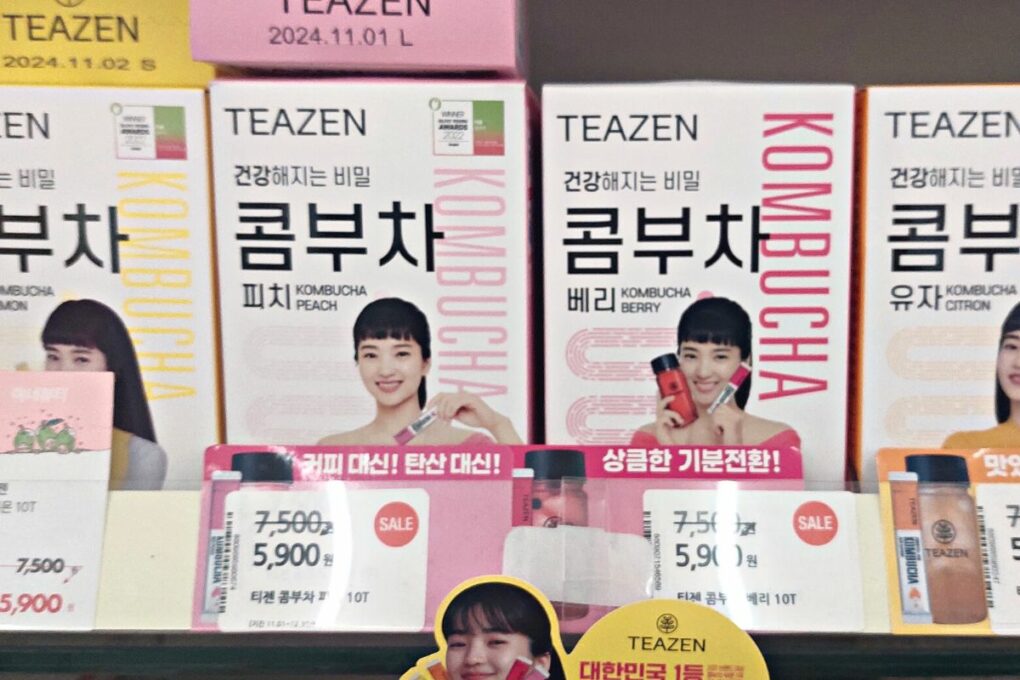
Jump to:
- ✈️ Basics of Travel in South Korea
- Unusual Things About Korea
- 1. Knocking before you enter a bathroom stall
- 2. Squatty potties
- 3. Burping, slurping, and spitting everywhere
- 4. Pushing and shoving is normalized
- 5. Honorifics and bowing
- 6. Foam blocks on the side of the car
- 7. GPS systems tell you if a speed camera is nearby
- 8. Countryside tunnels play loud music to keep drivers awake
- 9. Athleisure and Streetwear
- 10. Hiking trails are full of old people in athleisure
- 11. No security guards, just CCTV
- 12. You can’t watch adult movies in Korea
- 13. Free Wi-Fi everywhere (& a lot of fake Wi-Fi, too)
- 14. Waste bins are hard to find
- 15. Trash needs to be segregated (or you could get fined)
- 16. Café-hopping (& late-night coffee shops)
- 17. Soju for celebrations & meetings, regardless of time
- 18. Fruits & vegetables can get outrageously expensive
- 19. Hanu (Korean Domestic Beef)
- 20. MBTI Personality Types can sometimes matter in job interviews
- 21. Your blood type is said to determine who you will marry
- 22. Penis fish greet you by the entrance of wet markets
- 23. Collarbones are promiscuous
- 24. Koreans are a year older than the rest of the world (though this may soon change)
- 25. Ondols (Floor Heating)
- 26. Mandatory military enlistment for men
- 27. There are computers in their motels
- 28. Internet cafés in Korea are top-tier
- 29. Healthcare in Korea is cheap
- 30. Hospital patients wear their gowns outside
- 31. Plastic surgery is a common reward for good grades
- 32. Medical Tourism
- 33. Never write names using red ink
- 34. Fear of the Number 4
- 35. Naked Spas (Jjimjilbang)
- 💬 Comments
✈️ Basics of Travel in South Korea
Visa: Most travelers will need a K-ETA (Korean Electronic Travel Authorization), applied for at least 72 hours before departure. If you needed a visa before, you'll need a K-ETA now. Note that from April 1, 2023, to December 31, 2025, passport holders from 22 countries, including the US, UK, Canada, and several EU nations, can visit visa-free – no K-ETA required!
Currency: South Korean won (KRW or ₩)
Arrival in Korea: all international flights arrive at Incheon Airport (ICN), one of the best-rated airports in the world. It usually takes about 1 hour to get through security & pick up checked bags.
Getting Around: Korea has an extensive & reliable public transport system. A refillable T-Money card is your ticket to buses and trains across the country; you can buy and refill yout TMoney card at any subways station or convenience store in Korea.
Internet & SIM Cards: Rent a Wi-Fi egg or purchase a prepaid Korean SIM card at the airport, available for up to one month of connection.
Travel Insurance: always recommended, though some credit card companies offers limited coverage when booking.

Unusual Things About Korea
1. Knocking before you enter a bathroom stall
Just when you thought you have total privacy in a bathroom stall, turns out, there’s a person waiting for you to finish. They let their presence known by knocking on the door repeatedly even if they can clearly hear you knocking back.
It’s not that they are entirely impatient, it’s just that they’re letting you know that someone is waiting for you to finish. For Koreans, this is a polite act because not all stall locks work, and this is also another way to check if someone is inside.
2. Squatty potties
Another thing that will surprise you is the squatty potty, which are toilets seen mostly in Asia and the Middle East. To put it more objectively, it’s a simple ceramic bowl embedded in the floor, that requires the user to squat over it to do their business.
Even though Koreans swear by the benefits of squatting down during bowel movements, these unusual toilets are actually leftovers from before the country modernized. If you’re based anywhere outside Seoul, expect to see a fair number of squatty potties and yes, it will take some getting used to.
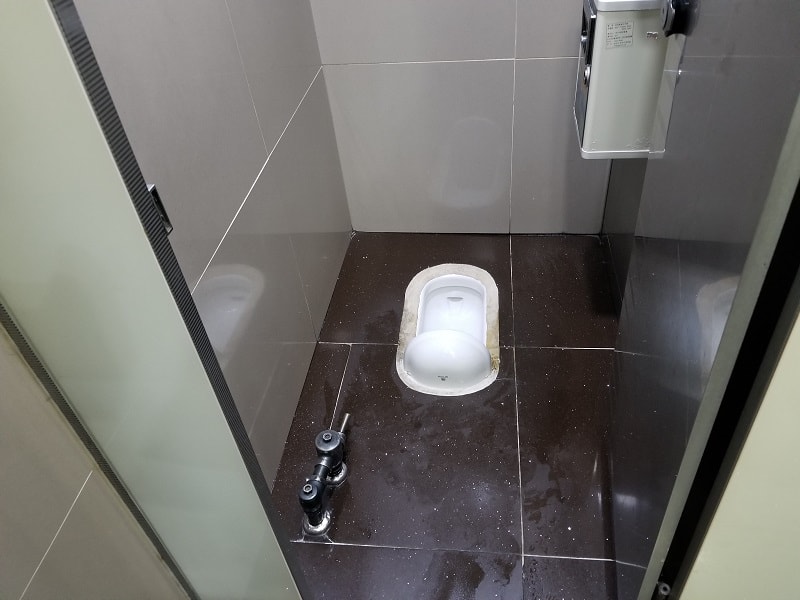
3. Burping, slurping, and spitting everywhere
Westerners might get turned off by this, but it’s quite common to spot locals burp, slurp, and spit in the streets. But in Korea, this is actually normal. What’s not okay, though, is blowing your nose in front of other people— that’s something for which you should excuse yourself to the squatty potty.
4. Pushing and shoving is normalized
An unfortunate truth about Korea is that when a little old lady shoves you aside with full force, people expect you to be okay with it.
Even if you retaliate with an angry glare, there’s not much else you can do. They may even think it’s your fault for not being aware that person was trying to get past, and will not hesitate to yell at you if you keep on throwing them dirty looks.
5. Honorifics and bowing
Much like other Asian cultures, Koreans bow as a sign of respect to their elder and to strangers. There are also various types & depths of bows depending on the situation, and it helps to learn how to bow if you don’t want to leave a bad impression.
Also, if you hear Koreans talk to each other, they don’t usually call them by their names. Instead, they prefer to use Korean titles and often speak with formality.
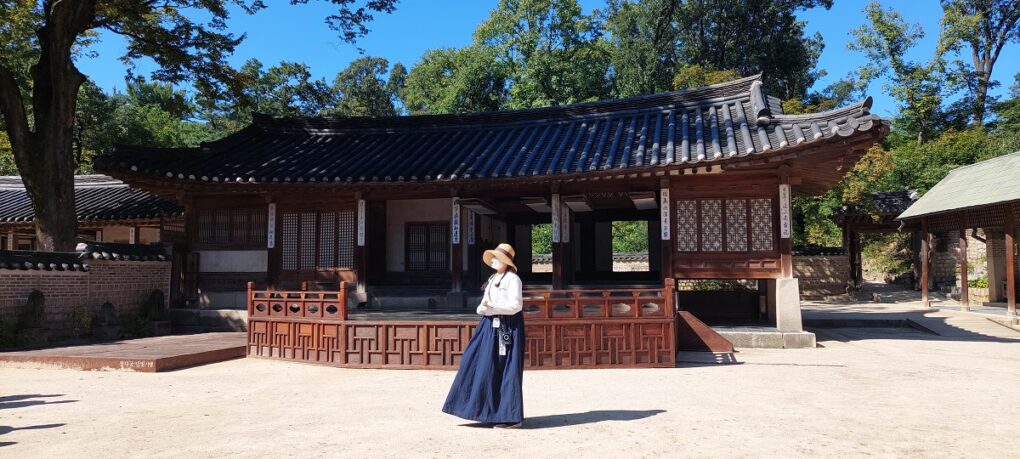
6. Foam blocks on the side of the car
One of the first things you’ll notice about most Korean cars is that they have brightly-colored foam stickers on their car doors. People place them there to prevent damage to their cars, by themselves or others.
Most countries don’t seem to care, but since Korean society is heavily influenced by Confucian ideology, it makes total sense why these things exist only in Korea.
7. GPS systems tell you if a speed camera is nearby
Foreigners and Koreans alike tend to drive using a GPS here. Even though the downside requires you to know a bit of Korean to understand it (though most rental cars now have English GPS), the upside is that it lets you know where the speed cameras are.
It will even tell you to slow down before you get caught, and then lets you know when you can speed up again. The last time a Korean friend of mine went to the States he got a $400 speeding ticket, though, so don’t get too used to those warnings.
8. Countryside tunnels play loud music to keep drivers awake
Korea’s transportation system is easy to navigate, and is widely considered the best in the world. Unfortunately, driving from Seoul to the countryside can get tedious, and drivers can’t help but feel sleepy. Thankfully, the government had a very in-your-ears solution for that: tunnel music.
That is loud music blasting from the speakers in tunnels throughout the countryside, instantly wakes drivers up. Music choices range from children’s ABC-type songs to very loud rock music, which is quite the start at 9pm on a silent, dark bus ride. Did I mention there are also flashing lights?
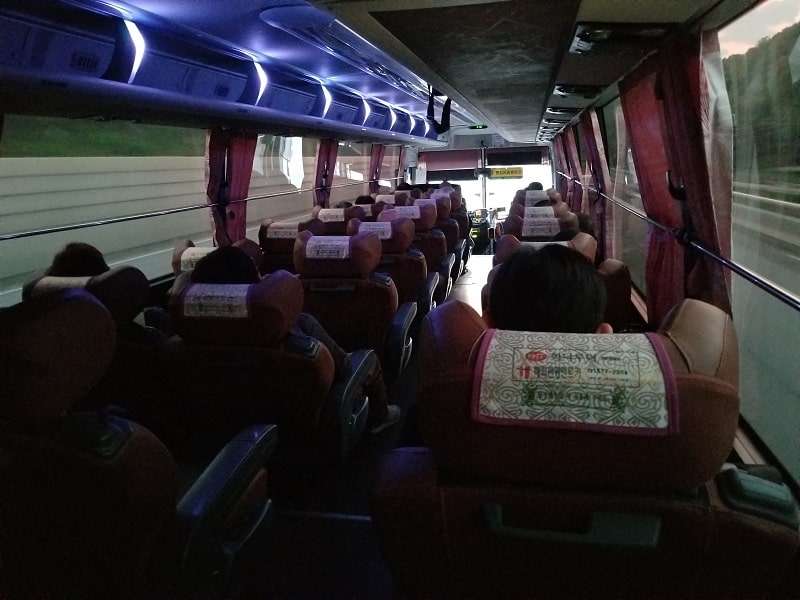
9. Athleisure and Streetwear
Everywhere you go in Korea, there will always be someone wearing brands like Mark Gonzales, thisisneverthat, mahagrid, and grooverhyme. These are all popular athleisure and streetwear brands in Korea, worn by people of all ages. Just think of hoodies, sweatpants or joggers, with the aforementioned brands.
It seems that these fashion choices come from the cultish following of K-Pop, since the models chosen for these brands are usually idols and notable K-Drama actors. Perhaps the real appeal they hold is comfort no matter where you find yourself, as Koreans love staying active and fit, even as they grow old.
10. Hiking trails are full of old people in athleisure
Expats frequently observe that old people in Korea are among the healthiest in the world, but after seeing them in action, it sure feels like a fact!
Hiking is considered a hobby in Korea, and due to the number of free hiking trails, it’s no wonder that clothing stalls in Korea always have a section for athleisure and hiking gear. One of the adorable things older people do is compare styles or gear at the foot of each trail, with most couples wearing matching colors & styles.
11. No security guards, just CCTV
Another surprising thing about Korea is that there are no security guards here, only CCTV. With more than 8 million CCTVs installed throughout the country, it keeps citizens feeling safe and secure.
The only downside is that it comes at the cost of locals’ privacy, though during covid that ended up saving thousands. Plus, it makes for funny surveillance cam clips seen on the Internet.
12. You can’t watch adult movies in Korea
So-called adult movies are a big no-no in Korea, and even if you tried, your browser will be blocked. Without a VPN, you’ll have a hard time seeing any internet pages deemed harmful by the Korean government.
Moreover, they track the number of times you try accessing these sites and will send you a warning if you continue to visit these spaces, reminding you that they are constantly watching.
They also have people who assist the cops called “Nuri Cops,” in this crusade to crack down on Internet violators, especially those who put up *ahem* adult content.
13. Free Wi-Fi everywhere (& a lot of fake Wi-Fi, too)
Mobile data is expensive in Korea, ranging from 13 to 16 USD per gigabyte (though I used to pay $8USD per giga when I used a pay-by-the-month phone plan for 3 years!). This amount dismays locals, knowing how most teens are digital natives and make money off their Instagram, Tiktok, and Youtube accounts.
A way for them to reduce smartphone bills is to connect in places that offer free WiFi, like buses, train stations, and even cafés.
They even have a name for these people: “WiFi refugees;” and they are commonly the unfortunate victims of hackers which mimic public WiFi systems. There’s no way to tell if the hotspot is legit because it’s so easy to mimic, especially in public spaces that have “iptime”, like areas near the station, community parks, or markets.
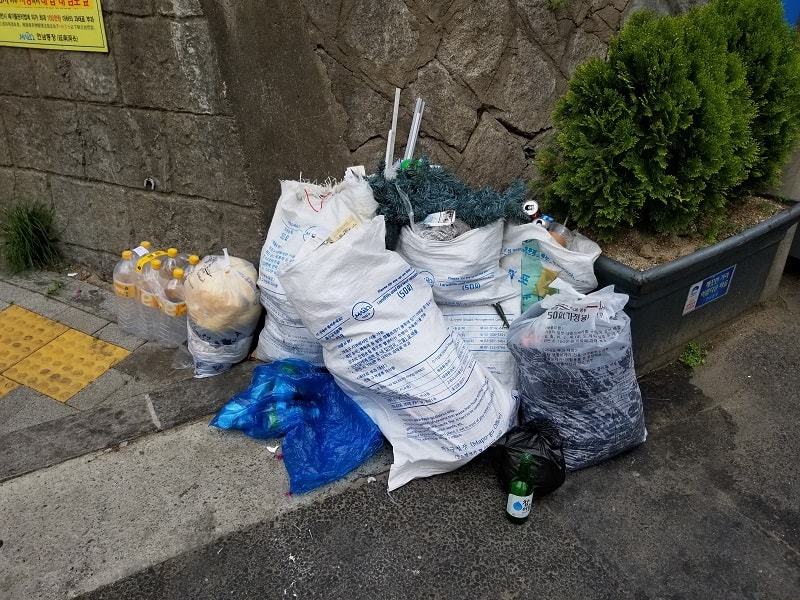
14. Waste bins are hard to find
A frustrating thing tourists and expats experience in Korea is the lack of public trash cans. This is because the government wants to cut the amount of waste produced by citizens daily, though I’d argue that not counting it doesn’t make it go away.
That’s why most citizens take their trash with them until they can find a trashcan in a cafe or restaurant, but unfortunately some lazy people litter, and it is evident on the streets by the evening. The reason why this is unfelt is because old people who volunteer come out around 5am to clean up the mess.
15. Trash needs to be segregated (or you could get fined)
Even trash is taken seriously in Korea, and ignoring the rules could get you heavily fined— and these days they’re cracking down by going through your trash (if you live here, that is). You have to put your garbage in the proper bags, which you can get in any convenience store or grocery store, and place them in the correct bins.
There are 5 different types of waste in Korea, and purchasing the trash bags actually funds the various recycling and trash pick-up programs throughout the country. Violators are fined ₩30,000 to ₩1,000,000 per offense.
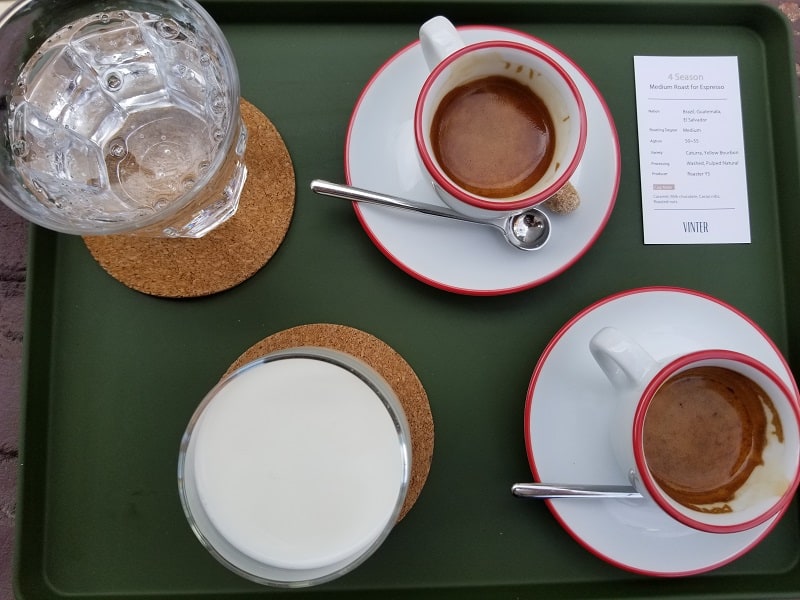
16. Café-hopping (& late-night coffee shops)
Korea’s coffee culture is a rising trend that doesn’t seem to be going down anytime soon. There’s a café on almost every corner, each with their own theme that attracts the kinds of customers they want. Some even have unique approaches, like animal cafés, poop cafés, and even pool cafés!
No wonder locals love “café hopping.” And the best part? Some of these places are open 24 hours, especially in university neighborhoods like Hongdae, Seodaemun, and Sinchon.
17. Soju for celebrations & meetings, regardless of time
Koreans are widely known for their toxic work culture, to the point that they have a name for it (gapjil). To alleviate the stress caused by this problem, they drink soju with their colleagues after work, and even mix it with a variety of other drinks.
By far, Korea’s drinking game remains the strongest in the world because sojus of all kinds are available cheaply in convenience stores, and the legal age to drink is 20 years old (19 for foreigners)!
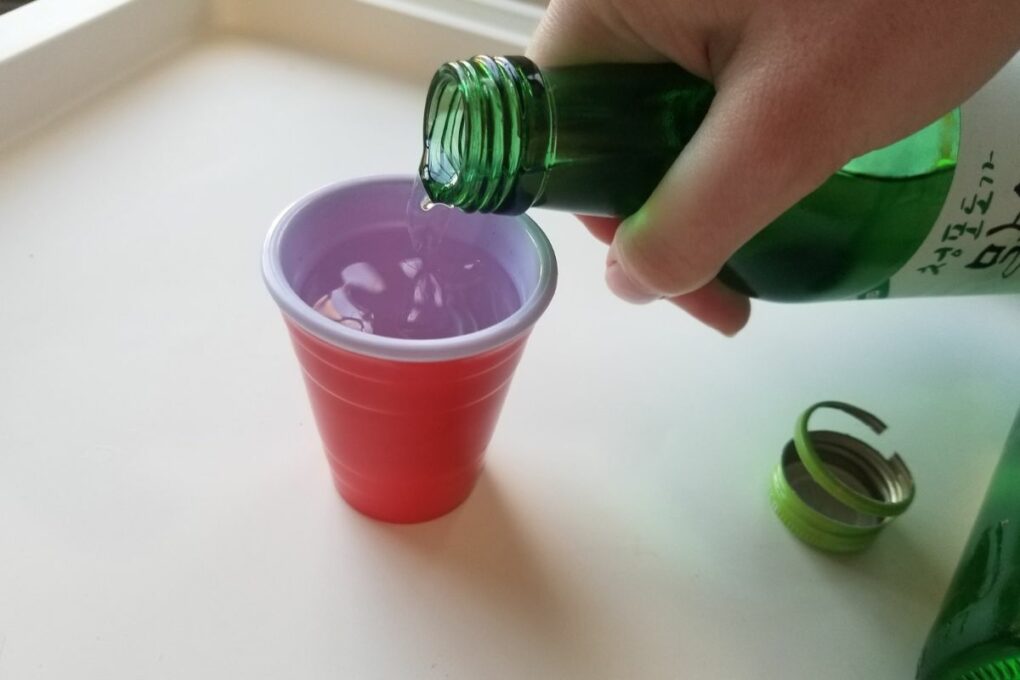
18. Fruits & vegetables can get outrageously expensive
One of the surprising things about Korea is that staple food items like fruits and vegetables are outrageously expensive. The weather is not tropical enough to grow many of the fruits and vegetables the like year-round. That’s why they import from the Philippines, Thailand, and Peru.
19. Hanu (Korean Domestic Beef)
Korean-raised beef (hanu), in my opinion, is better than wagyu and Angus beef. Very expensive, but the beef comes from farms that feed their cows with the best quality food. Hanu is a little bit sweet like Angus, but each bite feels more tender than the last.
Sure, it may be a luxury to try this in Korea, but I guarantee you it’s worth every penny.
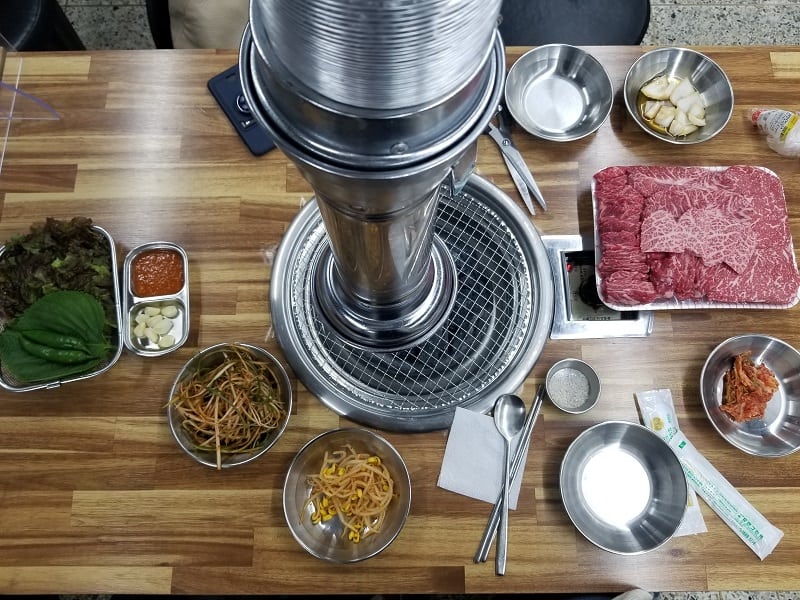
20. MBTI Personality Types can sometimes matter in job interviews
It’s only in Korea that you’ll see job ads that ask for your MBTI personality type. While MBTI test results are not the sole indicator for evaluating job applicants, Koreans believe that this categorizes people well & is a good determinant of work ethic.
Many companies strive to balance out the number of people with each personality type, in an attempt to achieve a more harmonious workplace. It’s up for debate as to how effective it is, however.
21. Your blood type is said to determine who you will marry
It’s not only in jobs where you have to worry about your personality type. It is also a huge factor in love & marriage for Korean people. Sometimes this is the first question they’ll ask during a date, and if they find out your blood type isn’t compatible with theirs, it’s quite probable there will be no second date.
22. Penis fish greet you by the entrance of wet markets
The moment you step into Noryangjin Fish Market, a large display of phallic-looking sea creatures surprises you by the entrance. These things are called gaebul, and they are consumed raw with spicy gochujang. Salty but a little sweet, they’re definitely worth a try.
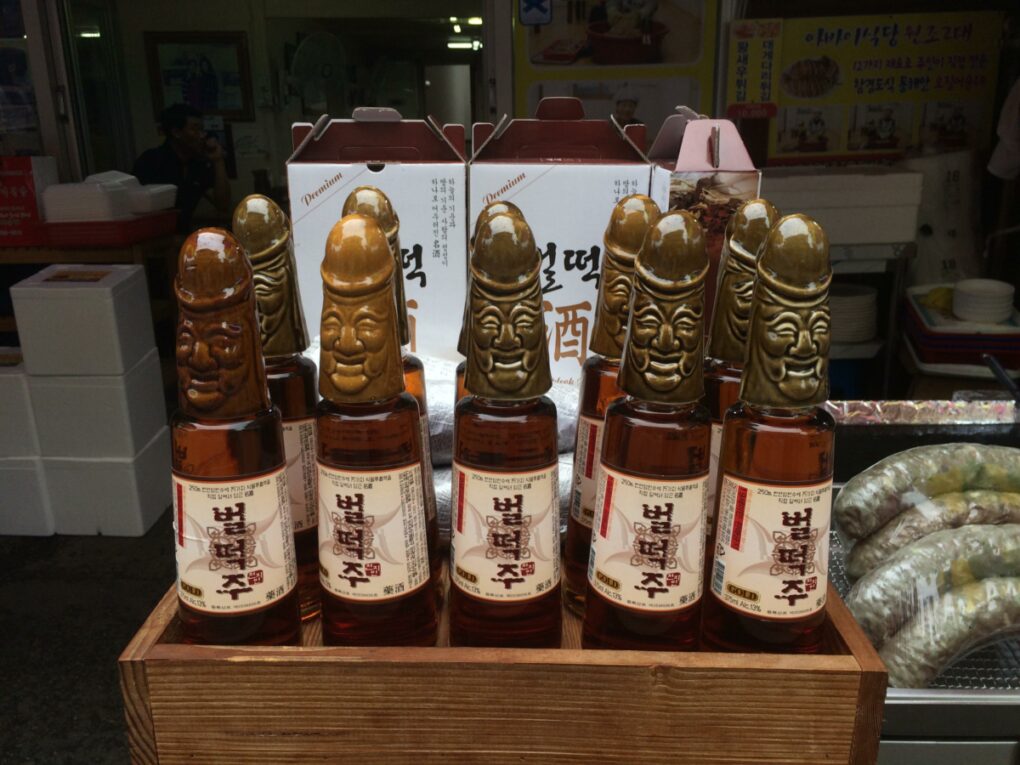
23. Collarbones are promiscuous
In Korea, it is perfectly fine for women to wear short, skimpy outfits as long as they do not show off their collarbones. Locals think showing off your collarbones is too sexy, because it inadvertently entices people to stare at your chest.
24. Koreans are a year older than the rest of the world (though this may soon change)
The concept of having a separate Korean age is definitely confusing, but basically people are either a year or two years older than their actual age, depending on whether or not their birthday has yet passed. Koreans believe that the time the baby spent in the mother’s tummy counts as a year, so their age starts at 1 when they’re born.
When the New Year strikes, all Koreans turn a year older. However, this may change in the coming years, as Koreans consider switching to the standard age system used in most other parts of the world.
25. Ondols (Floor Heating)
One of many things about South Korea that people dread is the harsh winter. This is why almost every house in Korea has an underfloor heating system known as an ondol. This system works quite differently from a fireplace, but produces the same level of comfort (or arguably more), especially for locals who prefer to sleep on the floor year-round.
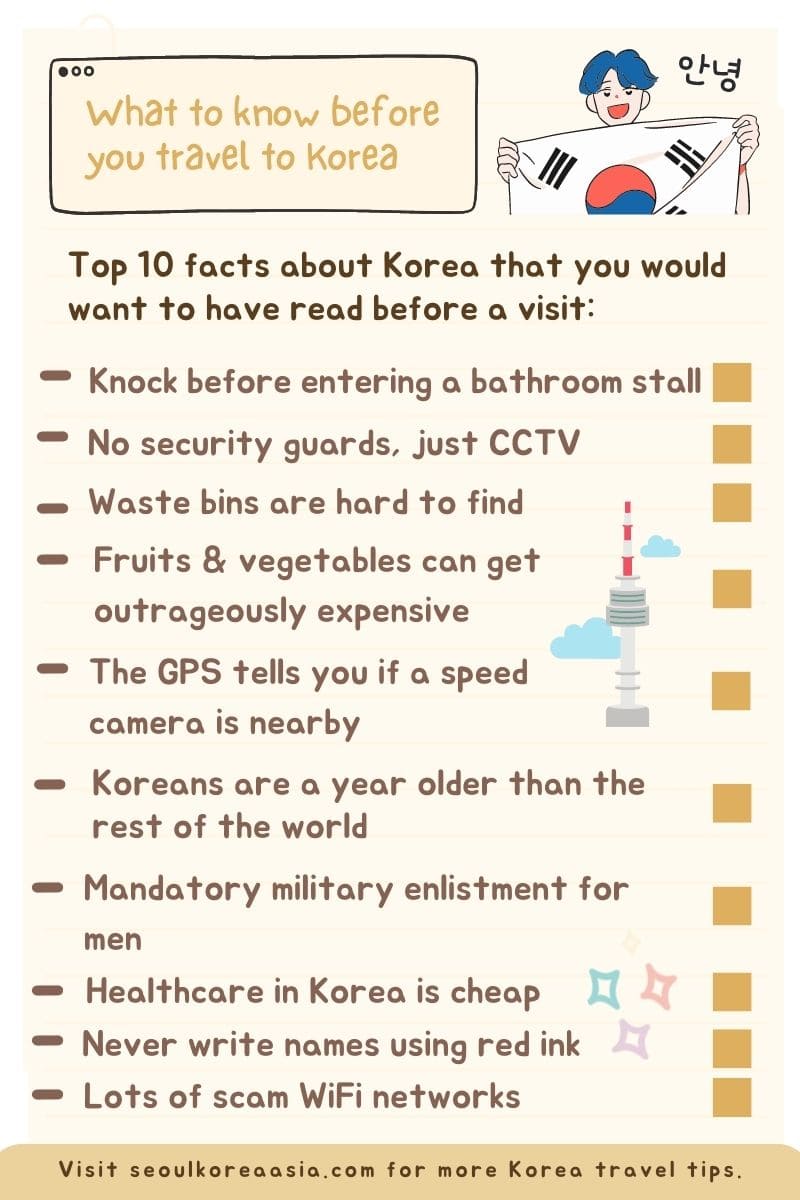
26. Mandatory military enlistment for men
Korean men between the ages of 18 and 28 are required to serve in the military for two years to eighteen months, in order to maintain a strong army in case of an attack from the North. There is also this big debate whether the biggest K-Pop group BTS should enlist or be exempt from it, but this remains unresolved.
27. There are computers in their motels
Korean motels are fascinating, because each room usually has a different theme that can be just about anything, includinga game room. The gaming culture is quite prevalent in Korea, and some motels maintain PC-tels for those who want to be in a cleaner and quieter environment.
This is as opposed to rowdy PC bangs full of screaming Korean teens. Even love motels advertise rooms with two computers (complete with gaming gear) for couples that love to play online games together.
28. Internet cafés in Korea are top-tier
E-Sports are taken seriously in Korea, and local youth believe they have a future in online gaming. This is why their “PC Bang” (‘computer rooms’) are the best in the world, complete with high-spec gaming equipment and super-fast Wi-Fi.
Plus, the food is really good, ranging from fried chicken and ramyeon to full set meals. The best part? No need to wait for an attendant; just walk in and register yourself.
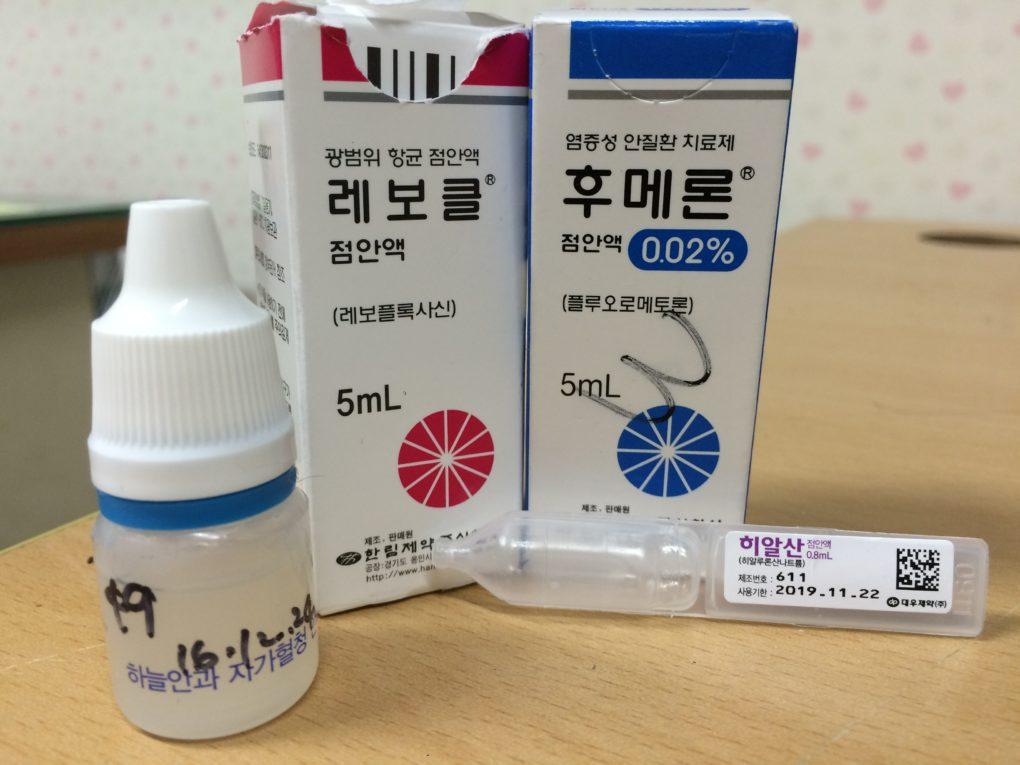
29. Healthcare in Korea is cheap
It’s no wonder that Koreans quickly visit the hospital if they feel even the slightest chill or mild headache. Healthcare is so cheap in Korea that many Americans can’t wrap their heads around the final bills. Moreover, their speed is unbelievable, with doctors and nurses in Korea being both well-trained and abundant.
30. Hospital patients wear their gowns outside
It’s easy to spot hospitals in Korea, because there are plenty of people in hospital gowns lounging around outside. It’s not really considered unusual here, so if you see anyone in hospital gear, they’re more likely enjoying a breath of fresh air than plotting their escape.
It’s one of the weird things about South Korea that that actually took me awhile to notice, but it was even more obvious once I’d gone back to the States for a bit.
31. Plastic surgery is a common reward for good grades
Normally, when they could afford it our parents would give us money in exchange for our good grades. But in Korea, plastic surgery is what makes students strive to stay on top.
Plastic surgery is so normalized; to the point that it is even encouraged so that young graduates can get an advantage in potential recruitment processes once they start applying for jobs.
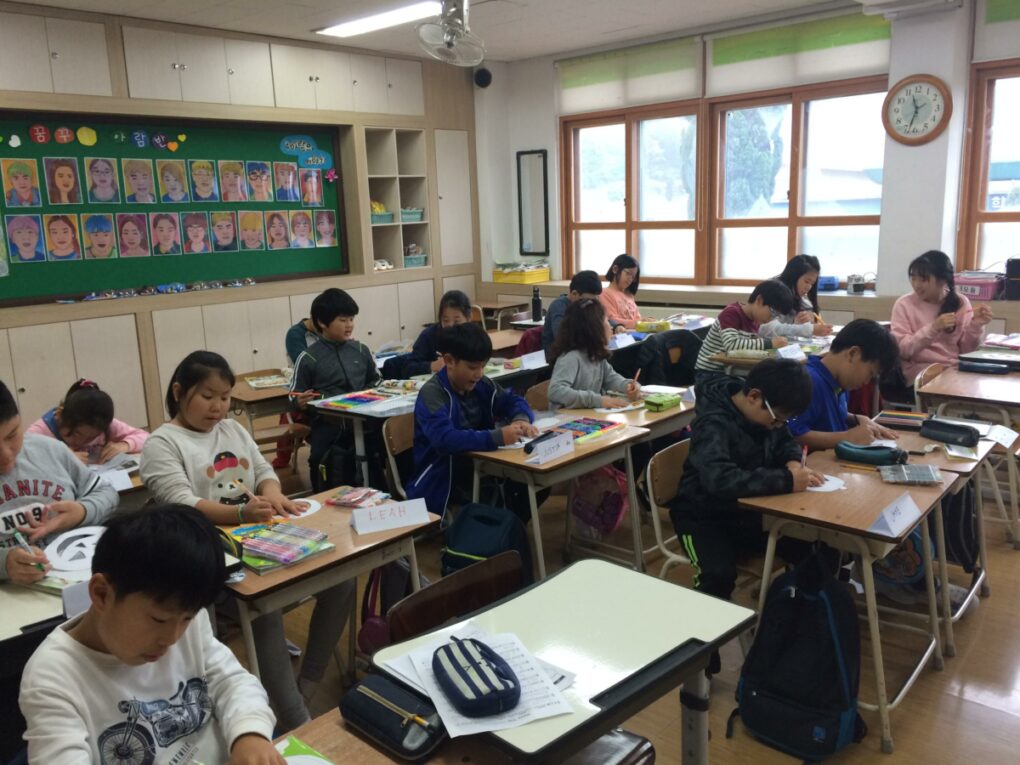
32. Medical Tourism
Thanks to the promotion brought by the K-wave, foreigners who want to look like their favorite idols sometimes travel all the way to Korea to get plastic surgery.
Some “plastic surgery travel packages” offer seven nights at a 3-star hotel, complete with interpreter and a trip to the Lotte Tower Skywalk for a mere $16,000. That’s why it’s no big whoop to see people out and about wearing bandages on their face (usually their nose)!
33. Never write names using red ink
This may seem to only apply to those who plan to send a letter to a Korean friend, but think about how often you have to write anyone’s name down. In Korea, writing names in red ink can be interpreted as a mild death threat. In olden times it had an implication of wanting someone dead.
This probably came from traditional Korean practice of using red to write the names of deceased people.
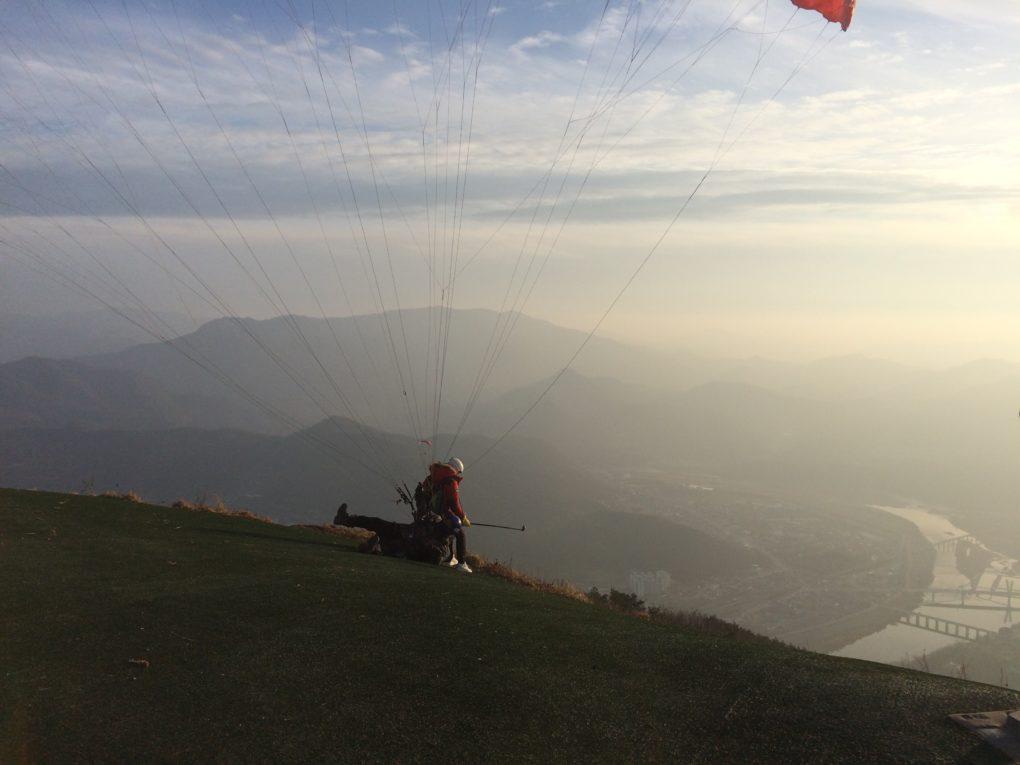
34. Fear of the Number 4
Don’t panic if you can’t find the number 4 in a Korean elevator. The word for this number in Korean is “sa” which sounds a lot like the word for death "sah."
Nowadays, some buildings do not worry too much about this number, but hospitals or clinics still live by this tradition to avoid giving clients extra stress. Furthermore, avoid giving things in sets of 4, because this is also considered to be bad luck.
35. Naked Spas (Jjimjilbang)
Korean spas are more popular than ever these days, but when I moved to Korea in 2016, the Korean wave hadn't yet hit the US. So encountering my first jjimjilbang was quite the experience. Not only are patrons separated by gender, but most spas have a space for people to stay overnight for free or a nominal extra fee.
And did I mention that everyone is completely naked when they're with people of the same gender? This definitely makes any differences a more 'stare-able' attraction for Koreans, including tattoos, very dark skin, and unusual hair colors.
I know that this list seems like a lot to take in, but these are just some of the things that make Korea fascinating and fun. Knowing these tidbits ahead of time will definitely be helpful in your encounters with Koreans— and hopefully will help you avoid awkward situations.

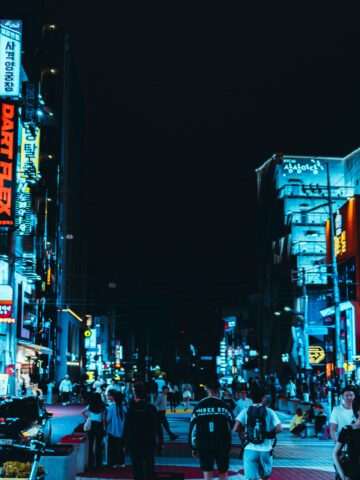
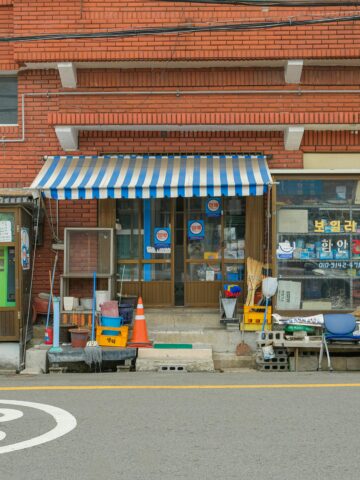

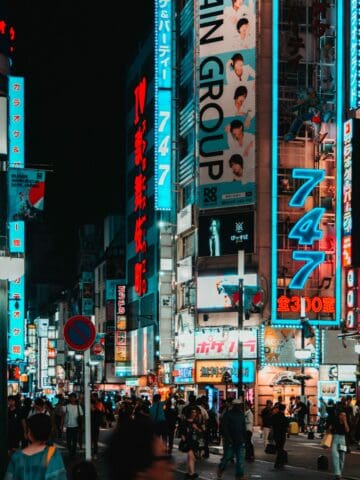
Comments
No Comments